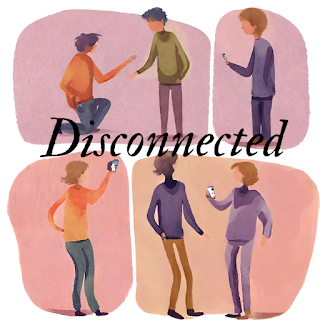Dialects
It took me quite some time in my life to truly understand dialects. I used to assume that when someone spoke in a dialect, they sounded like an elderly or middle-aged person, not realizing it was simply the use of a dialect. This misconception stemmed from the fact that I rarely heard people my age conversing in dialects.
Now that I've started to appreciate dialects, I've come to realize that what I once perceived as friends talking like "makciks" (elderly ladies) was actually them using a dialect. I mistakenly associated dialects with a specific age group rather than recognizing their ties to regional backgrounds.
I had a friend from primary school who spoke with a Kedah or Kelantan dialect, and I unconsciously categorized her as sounding like a "makcik." I encountered teachers who spoke with strong dialects but seldom had classmates who did the same. This contributed to my misconception. Additionally, my aunts and uncles would often use strong dialects, but none of my cousins did. As I've grown older, I learned that they made an effort to speak without dialects for the sake of my sister and me, ensuring we could communicate without difficulty.
During my time in matriculation, I found myself in an environment where students hailed from various states, yet most of them spoke in the standard dialect. I later discovered that older individuals had a harder time concealing their dialects, while younger people tended to adapt to the standard dialect. Moreover, individuals from states other than Selangor grew up exposed to the standard dialect through various forms of media, enabling them to mimic it perfectly. This explained why my friend could speak the standard dialect fluently.
I was once surprised to learn that one of my friends, who had never left her home state until university (where we met), effortlessly switched her dialect. While I understood that people who attended boarding schools or traveled frequently might adapt, her case was different, yet she had no difficulty adjusting her dialect.
As someone raised in Selangor, I found it fascinating to learn about dialects from other states. I was astonished when I couldn't comprehend the Negeri Sembilan dialect, even though it's not far from where I live. However, one day, a construction worker was speaking in that dialect, and I was taken aback by my inability to understand. Fortunately, my friend helped translate, and once it was explained, I could discern what they were saying.
I also discovered that some of my cousins from Sabah had trouble understanding my speech. It was perplexing to me because all I said was "Buat apa tu?" which translates to "What are you doing?" I'm not sure why it only recently dawned on me that they couldn't understand me. For many years, I had no trouble communicating with them.
Reflecting on my younger years, I recall a brief period (four years) when I lived in the United Kingdom. It wasn't until much later that I realized the difference between American and English accents. At a young age, I couldn't distinguish the two. Perhaps I've always had difficulty with dialects and accents in general. I used to believe that everyone had a unique way of speaking, considering it an individual characteristic.
I find it somewhat amusing as I connect the dots and understand why I held certain beliefs during my youth, now that I've had this revelation. I was aware of the existence of dialects, but I never truly acknowledged their significance until later in life.


Comments
Post a Comment